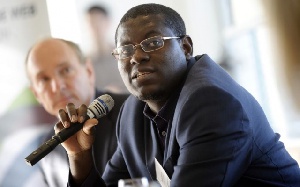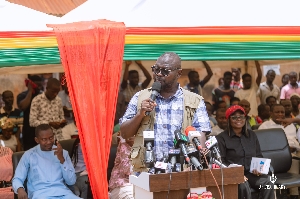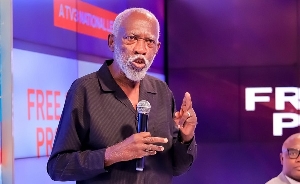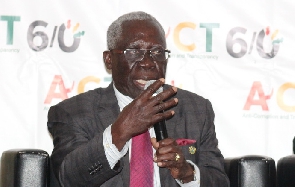Based on a preliminary assessment of deportations per capita, online fraud, bridal scams, maritime crime, drug trafficking, people trafficking etc., I am confident that if a single Global Risk Index was built, Ghana could rank in the top 20 of countries.
This is frighteningly remarkable for a country of this size; population; economic structure; and democratic and peace credentials.
In a Facebook discussion [Sunday] noon, I find, to my horror, that most people have no difficulty accepting this prospect as fact. They only argue that this is the result of our passport being easy to acquire by transnational criminals.
That excuse though doesn't add up. Since perceived risk associated with the Ghanaian identity is rising, why would transnational criminals continue to prefer Ghanaian passports, rather than, say, Liberian or Senegalese passports? Could it be that the high passport fraud that many observers cite is itself a symptom of the general "high risk" nature of our environment?
Upon reflection, I have decided on this hypothesis: our culture is being remade by a "subculture of entitlement" built on top is a "system of illusions".
It operates thus:
1. We have become socialised into believing that we deserve comfort, success and recognition, almost as a matter of course.
2. The socialisation does not put as much emphasis on talent, hard work, and drive as prerequisites for enjoying these "goodies". There is a strong belief that luck, grace, "blessing due to humility", and "affiliations" (working hard for short spurts of time to get a "badge" or ticket to some social "club" and then policing admission), produce comfort, success and recognition.
3. Because the factors described in (2) above are minor contributions to obtaining that which we have been socialised into believing we are entitled, we have developed an underlying values system that is actually deeper and stronger than the belief in "luck", "grace" and "blessing". This "latent belief-complex" (a la Edgar Schein) is not discussed publicly. It emphasises "Kwaku Ananse" morality: shrewdness, double-speak, corner cutting, and responsibility evasion.
4. Invariably, we seek to acquire that which we have been socialised to believe we deserve through these Kwaku Ananse tactics, but only talk and preach about "blessings", "grace", "luck" and "humility".
5. The joint effect of these dissonances reinforces the cycle of wanting more for doing less. We are thus extremely "socially striving" whilst pretending to be docile, risk averse, and content. The overt values thus make people work even less and fail to invest in their capacity/hone their talents, whilst at the same time investing in "signals" and "shortcuts" to achieve that which they believe they deserve.
6. More importantly, we set benchmarks for others based on our illusionary standards of achievement (standards to which we don't have to hold ourselves to, obviously). And we expect that they meet them.
How they do so is really not important because in our illusionary system we do not really talk about what it takes to really attain comfort, success, and recognition. We have consciously broken the link by adopting Kwaku Ananse tactics whilst preaching "grace" and "blessings". The broken links are now VERY REAL. We genuinely can't forge them back in. We don't even know how.
7. That is why there is so much clamouring for titles and honours, which we liberally bestow, and yet so little respect for each other. The model above is the only way to explain the paradox. Few societies on Earth bestow honours and titles so liberally and yet disrespect each other so much. It is due to the system of illusions we have self-consciously erected. We kind of know it's all not real, but we insist on them, and therefore we must play the game.
8. The social outcome though is pretty clear: a passive aggressive "success at all cost" stepping on feet, whilst smiling at everyone, bedlam. There is a "repressed mayhem" bubbling beneath this society. And there is growing objective evidence to show that it is at a level that is globally significant.
About the author
Bright Simons is a technology innovator, development activist and social entrepreneur, based in Ghana, whose work challenges the received wisdom about social and economic development strategies and programs in Africa.
Simons' mPedigree technology has been crucial in detecting and fighting fake medicines and products in Ghana and across the world.











